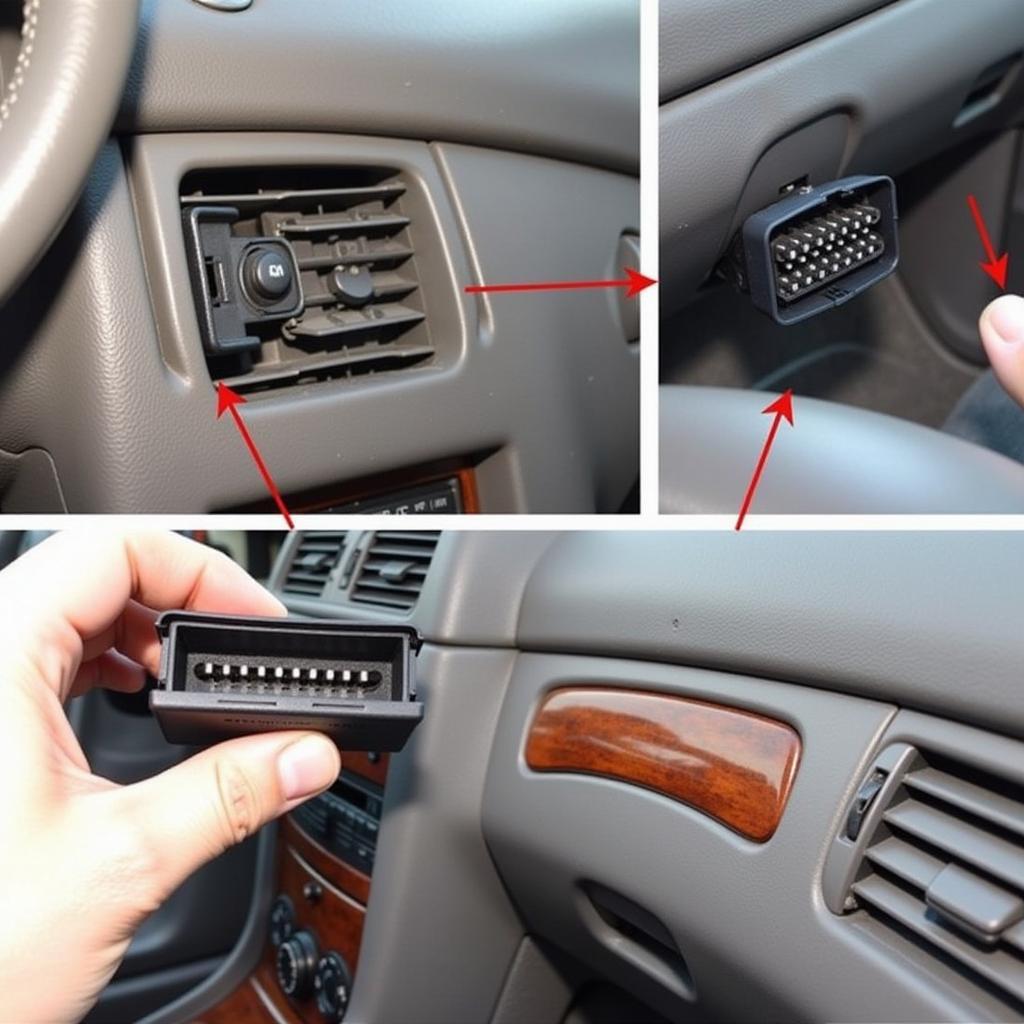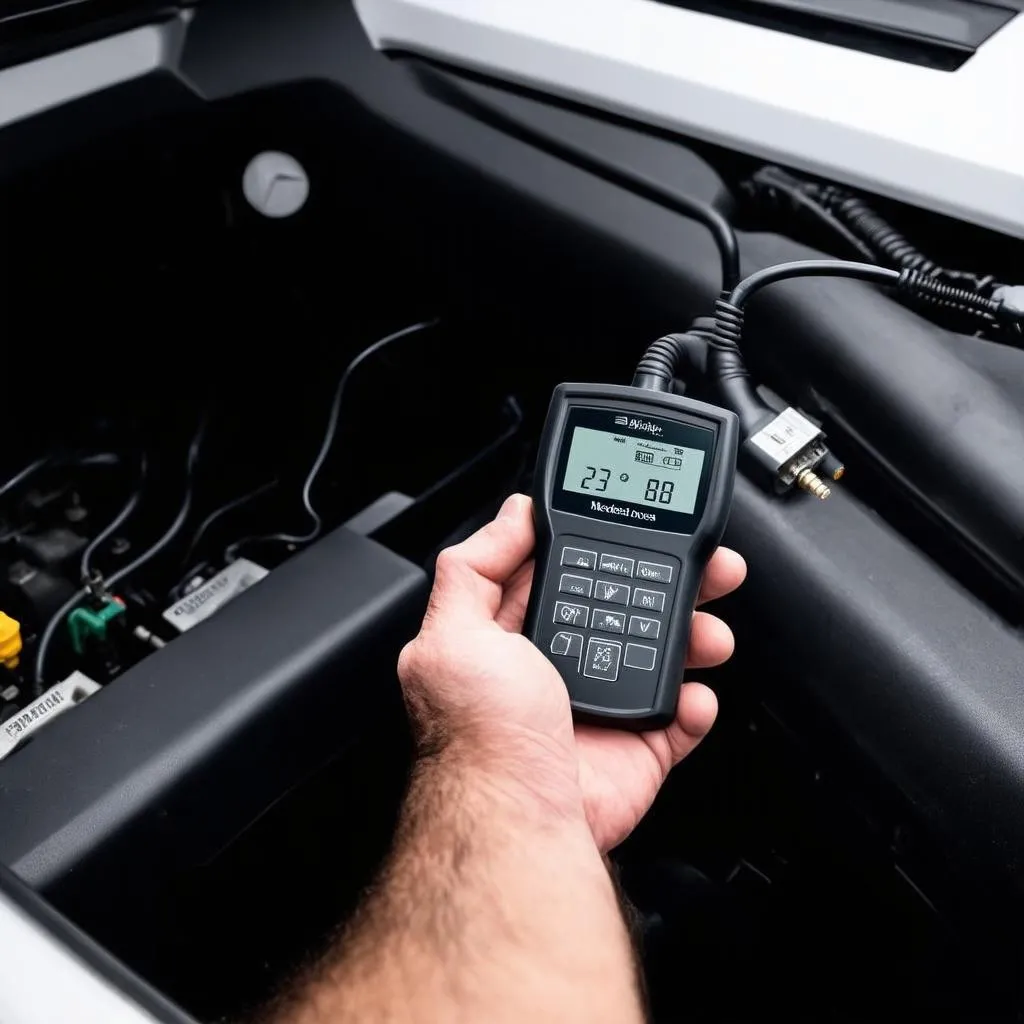Dealing with a frozen front brake on your 1980 Bendix-equipped Mercedes Benz can be a real headache. This article provides a comprehensive guide to diagnosing, troubleshooting, and fixing this common issue, helping you get back on the road safely and confidently. Whether you’re a seasoned mechanic or a DIY enthusiast, we’ll cover everything you need to know about this 1980 Mercedes Benz brake problem.
Understanding the 1980 Bendix Mercedes Benz Brake System
The 1980 Mercedes Benz models often utilized a Bendix brake system known for its robust design. However, like any other system, it can experience issues, particularly with age and wear. A frozen front brake is a common problem, often manifesting as a pulling sensation, uneven brake pad wear, or even a complete lockup. Understanding the underlying causes is crucial for effective repair.
Common Causes of a Frozen Front Brake
Several factors can contribute to a frozen front brake on a 1980 Bendix Mercedes Benz:
- Corroded Caliper Pistons: Over time, the caliper pistons can become corroded due to exposure to moisture and road salt. This corrosion can prevent the piston from moving freely, leading to a seized brake.
- Stuck Brake Pads: Brake pads can become stuck in their brackets due to rust or debris buildup. This prevents them from releasing properly from the rotor, resulting in constant friction and a frozen brake.
- Collapsed or Kinked Brake Hoses: A collapsed or kinked brake hose restricts the flow of brake fluid, preventing the caliper from releasing pressure and causing the brake to remain engaged.
- Faulty Brake Master Cylinder: While less common, a malfunctioning brake master cylinder can also contribute to a frozen front brake by not allowing the release of hydraulic pressure.
- Seized Parking Brake Cable: If the parking brake cable for the front brakes becomes seized, it can prevent the brakes from fully releasing.
Diagnosing the Problem: 1980 Bendix Mercedes Benz Frozen Front Brake
Accurately diagnosing the source of the frozen brake is essential for effective repair. Start by checking the temperature of the affected wheel after driving. A noticeably hotter wheel than the others indicates a sticking brake. Then, inspect the brake caliper, pads, and hoses for visible signs of damage, corrosion, or leaks.
Fixing the 1980 Bendix Mercedes Benz Frozen Front Brake
The specific repair will depend on the diagnosed cause:
- Corroded Caliper Pistons: You might be able to free up the piston by cleaning and lubricating it. However, if the corrosion is severe, replacing the caliper is usually the best solution.
- Stuck Brake Pads: Remove the brake pads and clean the caliper brackets thoroughly. If the pads are excessively worn or damaged, replace them.
- Collapsed or Kinked Brake Hoses: Replace any damaged or kinked brake hoses. This is a relatively simple procedure but crucial for proper brake function.
- Faulty Brake Master Cylinder: If the master cylinder is suspected, have it tested or replaced by a qualified mechanic.
- Seized Parking Brake Cable: Lubricate or replace the seized parking brake cable.
Preventing Future Issues: 1980 Bendix Brake Maintenance
Regular maintenance is key to preventing frozen brakes. This includes:
- Regular Brake Inspections: Inspect your brakes regularly for signs of wear or damage.
- Brake Fluid Flushes: Flush your brake fluid every two years or as recommended by the manufacturer.
- Caliper Lubrication: Periodically lubricate the caliper slides and pins to prevent corrosion and seizing.
“Regular brake maintenance is far more cost-effective than dealing with major repairs down the road,” advises John Davis, a seasoned automotive technician with over 30 years of experience. “A simple inspection can often prevent costly and time-consuming problems like frozen brakes.”
Conclusion: Keep Your 1980 Mercedes Benz Stopping Power Strong
Addressing a frozen front brake on your 1980 Bendix Mercedes Benz is crucial for safety and optimal vehicle performance. By understanding the common causes, diagnostic procedures, and repair options, you can effectively fix the issue and prevent future occurrences. Regular maintenance and timely repairs are essential for maintaining the stopping power of your classic Mercedes.
FAQs
-
How often should I check my brake pads? Inspect your brake pads every six months or 10,000 miles.
-
What are the signs of a bad brake caliper? Signs include pulling to one side, uneven brake pad wear, and a grinding noise when braking.
-
Can I drive with a frozen brake? No, it is unsafe to drive with a frozen brake. Have it repaired immediately.
-
How much does it cost to replace a brake caliper? The cost varies depending on the make and model of your car but typically ranges from $150 to $300 per caliper.
-
How long does it take to replace brake pads? Replacing brake pads usually takes about an hour.
-
How can I tell if my brake hoses are bad? Look for cracks, bulges, or kinks in the hoses.
-
What is the best brake fluid for my 1980 Mercedes Benz? Consult your owner’s manual for the recommended brake fluid type.
Need help with your 1980 Mercedes Benz? Check out our other articles on classic car maintenance and repair. For immediate assistance, contact us via WhatsApp: +1 (641) 206-8880, Email: CARDIAGTECH[email protected] or visit our workshop at 276 Reock St, City of Orange, NJ 07050, United States. Our 24/7 customer service team is ready to help.


